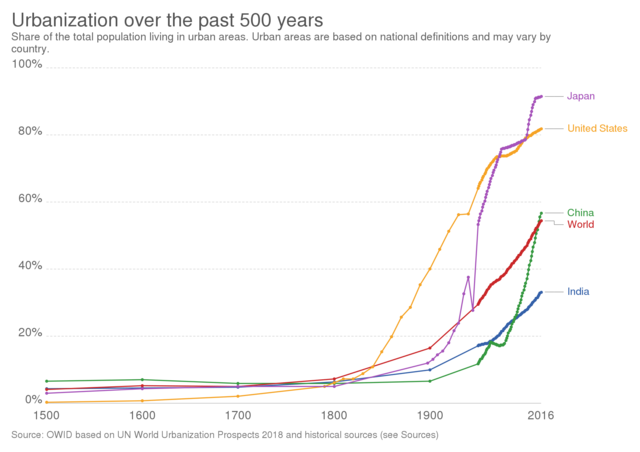vtsnowedin wrote:I think you have a skewed view of conditions in America and it's cities. The median net worth for all Americans (assets minus debts) is over $93,000 and even of people under 35 years old the median is $14,000 so that means many more Americans have assets well in excess of the debts that stand against it. Of course in every age group there are those whose spending exceeds income so have a negative net worth but those are the exception not the rule.
Yes. I remember being a wee bit annoyed in the mid 2000's. Housing was booming, and there were a lot of people in my city buying new $800,000 and up sort of houses. Many people were running around in very late model cars, buying or leasing new ones every few years for BOTH husband and wife. And of course, exotic vacations, clothes, furniture, dining, etc. And that seemed to reflect what was going on in much of the US.
Very very different from my lifestyle, yet I had a supposedly good job in tech, and worked a LOT of hours and virtually every holiday weekend to keep that good job safe. Started to wonder if I was stupid or doing something wrong.
But of course, I went ahead and retired at age 48 in mid 2007 because though I wasn't "rich" the way most people think of rich, re huge incomes, I knew I could live reasonably comfortably at my chosen lifestyle, and I was getting out before the stress ruined my health.
And then came the great recession and all the wailing about being able to pay bills, and suddenly fundamentals and being frugal mattered again (for a few years, anyway). So at that point, at least financial fundamentals seemed to make more sense, again.
But yes, even with excessive spending and lots of personal debt in aggregate, the median household income in the US was over $67,500 in 2020, even in the midst of the Covid-19 economy.
And from 2019 to 2020, the poverty rate only went up 1%, and the median income only dropped 2.9%, so clearly the social safety net does a rather reasonable job overall, despite all the claims to the contrary.
https://www.census.gov/library/publicat ... le%20A%2D1).
For 2021, the HUD survey estimate for US median US household incomes is nearly $80,000, which seems to reflect a rather strong economy. (See chart on the last page, with the US being the last line).
https://www.huduser.gov/portal/datasets ... ns2021.pdfWith the average person having meaningful net assets, and the average new car now having a transaction price (including loans, taxes, fees, etc) of over $42,250, the claims that US poverty is just rampant don't stand up.
At least NOT in terms of absolute poverty. Now, for relative poverty, yes, there's a big difference between the top and bottom quintile. But of course, the far left and much of the left generally, will never be happy until everyone has equal wealth, even if the lack of incentive makes everyone poor.
Given the track record of the perma-doomer blogs, I wouldn't bet a fast crash doomer's money on their predictions.








